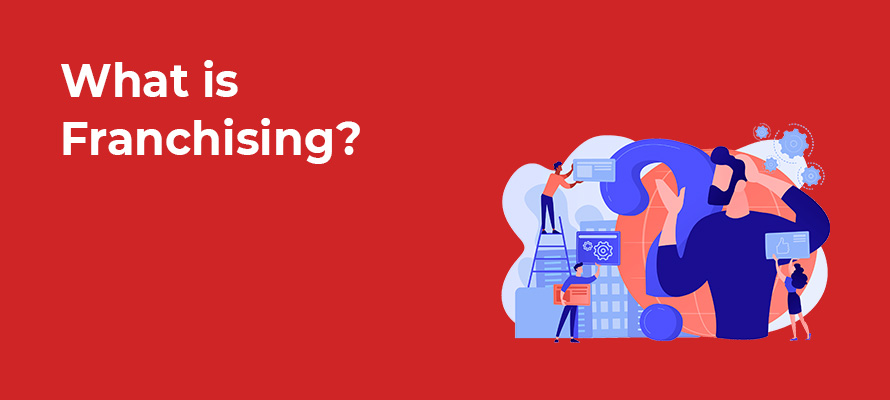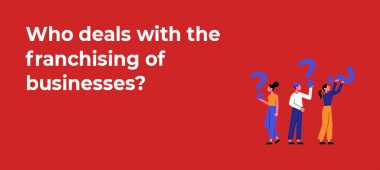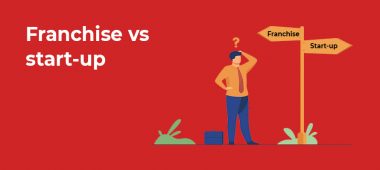What do you need to know?
You’ll be seeing these slogans:
“When you succeed, we succeed.”
“Be your own boss; we’ll help you get there.”
Have you heard about franchising? And you want to run a business —and you’re intrigued, but you aren’t sure if choosing a franchise opportunity is the right for you. If these are the questions in your mind, then you are in the right place. This article will let you have an overview of what franchising is,
starting from scratch sounds a bit intimidating for you, but what if buying an existing business doesn’t sound right for you? Can franchise ownership be suited for you? How could you know if franchising is right for you or not? Essentially, a franchisee pays ongoing royalties to a franchisor and an initial fee. But the question comes, what does it get in return? The franchisee gains ongoing support from the franchisor’s use of a trademark, and the right for selling its products or services even using the franchisor’s system of doing business.
Buying a franchise offers many other advantages in addition to a well-known brand name, that aren’t available when starting a business from scratch for the entrepreneur. Perhaps you get a proven system of operation and the most significant is training in how the system is used. As the franchisor has already perfected daily operations through trial and error, new franchisees can surely avoid many mistakes startup entrepreneurs typically make.
You will have greater confidence that there is a demand for the product or service. Market research is conducted by reputable franchisors before they sell a new outlet. As one of the biggest mistakes independent entrepreneurs typically make is Failing to do adequate market research. As for a franchisee, it’s already done. Even a clear picture of the competition and how to differentiate yourself from them is provided by the franchisor.
Independent operators have to negotiate on their own. Franchisees can enjoy the benefit, such as gaining economics of scale in buying materials, including supplies and services, advertising, as well as in negotiating for locations and lease terms strength in numbers. While being independent, some suppliers won’t deal with new businesses or will reject your business because your account isn’t big enough.
So, as we have a better understanding of franchising, let’s have a look at the things you should know before investing in buying a franchise as long as you do it in a smart and calculated way to own your own business buying into a franchise can be a good way,
So, the list for several important things is as follows
- Do Your Homework
You should know about the industry and the business you want to buy into. Educate yourself first. They will only introduce you to people who will help them sell you their business license. Interview the franchisor aggressively. Ask questions about their franchise license boundaries,pre-opening support, site selection, design, construction, financing, training, and a grand-opening program.
- Study the field.
Avail yourself of available information on the ABCs of franchising before purchasing one. You do not want to face some unexpected situations that you have never heard of.
- Assess Your Work Style & Strength
How do you feel about business-to-business sales? How do you feel doing the same tasks all the time? Do you like people? How about if you hate sales? It will be trouble for you in running a business. You’ll be needing a partner to handle that side of the business, if you hate people, at least always be honest about your strengths and weaknesses with yourself. To know about your strengths & weaknesses, pick three people you trust and ask them. Where you have some experience, it’s best to buy a business. Just because you like to eat, don’t buy a restaurant franchise. But if you just have experience in food service and management.
- Count your money
As, listed the franchise fee and the cost of equipment, look beyond the minimum requirement for buying a franchise. Getting a franchise running and up and involve the need to survive on break-even books and hefty marketing costs, before your business catches on, even a period of net losses. Customers have to discover your new location, even if you’re franchising a well-known brand like 7-11, The Franchise Disclosure Document (FDD) is required to list additional working capital under item No. 7. The FTC’s guide says to become profitable; it may take a year. You should be having access to capital that will cover both your personal living expenses for a year and business expenses for six months.
- Get Your Money Straight
It can involve hefty sums of cash in getting a franchise up and running, including the cost of equipment and buy-in fee, up-front marketing costs, location, and fit-up construction for retail businesses. You’ll need at least the first year not to mention funds to live on while you are building the business and operating capital before the business catches on. Even in a new location, well-known brands like Dunkin need time to catch on.
- Talk to franchisees.
Talk to at least 10, As FDDs include the names and phone numbers of current franchisees. Ask about hidden costs, pros, and cons. Now the questions come are, How long did it take them to become profitable? What did they learn that they didn’t glean from their research before they become franchisees? How much did they wind up spending? How supportive is headquarters? What was the toughest part of building the business? How challenging is it to hire good staff? Ask if, given what they know now, they would do it again or recommend the franchise to a close family member? Keep in mind that “ego is a big thing,” says Teixeira. Some franchisees might not want to admit that they’ve struggled—all the more reason to talk to as many as you can.
- Read the FDD Disclosure Statement Carefully
The Franchise Disclosure Document is the one that provides information about the franchise and franchisor system for the requirements of the franchise. According to the procedures and restrictions, franchisees are required to operate their businesses, outlined in the franchise agreement. No franchisee is completely independent. Which products or services can be offered, geographic territory, and pricing. These restrictions are the ones which usually include. How much working capital the franchisee needs to have available these requirements are also there in this agreement. As you have no control over who can buy a franchise in your area. The most serious disadvantage to becoming a franchisee is FDD, nor can you deviate from requirements or products.
- Consider hiring professional help.
You’ve negotiated legal contracts and insured a past business. If you have accounting know-how and feel comfortable reading a balance sheet, you may not need an accountant, insurance agent, and lawyer. But with some self-interest, the lawyer says you should have a professional lawyer review how your financial health will be affected by the franchise arrangement before you sign a franchise contract.
- Use a Franchise Attorney
you need a specialist. Not every business lawyer can negotiate a franchise agreement. Including the use of fees, trademarks, support, and control The franchise license agreement (FDD) is a contract that describes the relationship between the franchisee and franchisor, I tell each party what each is supposed to do. As, it is a legal, written contract between the franchisor and franchisee.
- Work for a Franchise
A man always learns by doing. You should be working for one. Before starting a business or buying a franchise, .you can see how things really work, and how much support is really provided by the franchisor. Once you become an employee, it could give you valuable information as t is like being an undercover boss. To get a real impression of how things work, you should work for at least six months.
- Talk to Other Franchisees
To get the real story is about the pros and cons you should reach out to other owners of the franchise to get their story and see what. How much support they receive from headquarters is one of the most important questions to ask them and will they would buy into the business again based on what they know now. This also should be asked. Many small business owners are prideful So, Aim to speak to at least ten franchisees just because they won’t want to admit that they struggled financially.
You could be investing between $160,000 and $1 million. Depending on the franchise you choose before the business even opens. Before you sign your franchise agreement do yourself a favor: try to find any disgruntled franchisees online. You should know If there’s any discord out there about your franchisor. Take advantage of the national and regional advertising, training, operational assistance, operating procedures, access to bulk purchasing and ongoing supervision, and management support.
Conclusion
So, now the question is whether you should franchise or not? So, as doing a franchise makes you come with a recognizable brand, from day one, and the power to negotiate with the big industry players that you can’t do in your own startup business and you even get a built-in support network with an asset to sell when the time comes.













